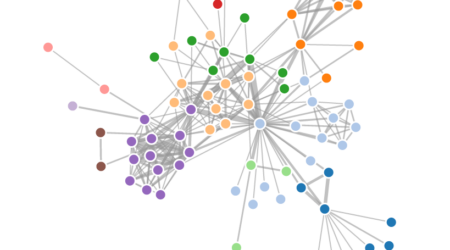Lewis Mumford became one of the most renowned American intellectuals of the 20th century by popularizing the study of the city through his 20 books and 1000 articles, most written without regard to academic specialization or elitist jargon. To Mumford, the study of the city was fundamentally interdisciplinary. As he wrote in the book Sketches from Life, he was grateful to have been taught to “refuse to recognize the no-trespass signs that smaller minds had erected around their chosen fields of specialization.” Instead he made the city itself “in all its richness and variety…my university.”
In recent years, a group of Berkeley graduate students have acted on this belief and created a forum to examine cities through the lens of different disciplines. The UC Berkeley’s Critical Urbanisms Working Group brings together anthropologists, geographers, sociologists, city planners, architects, and historians, who gather regularly to exchange work, conceive of new projects, and welcome scholars from around the world.
Administrator Matt Wade, a Ph.D. Candidate in UC Berkeley’s Department of City and Regional Planning, explains that the “critical” component of the groups stems from a shared “understanding of how to think critically—not technically—about the practices of colonialism, the trajectories of capitalism, [and] government management of population,” with an emphasis on how these forces have shaped the modern city.
Now centered and run at UC Berkeley, the group emerged when Austin Zeiderman, then a graduate student in Anthropology at Stanford, attended Berkeley’s 2006 Breslauer Symposium on “The Right to the City.” Through this event, he discovered a level of engagement with urban space and the built environment that was lacking at Stanford, and so he partnered with other graduate student attendees from both universities to form the Berkeley-Stanford Citygroup. From there grew a “cross-campus network of people interested in cities and urbanism,” Zeiderman explains.
A flexible structure allowed the group to become one of the most resilient student groups on campus. As its leaders have traveled to conduct fieldwork in Colombia, Mexico, Senegal, or Indonesia, they have continually transferred the reins to a new group of urban studies scholars, who reorganize the group around emerging, pressing questions. In 2009, the group highlighted the problem of globalization and citizenship and hosted eminent sociologist Saskia Sassen. More recently, they invited Fadi Shayya to speak on the politics of space in post-war Beirut. The group is now affiliated with Berkeley’s Global Metropolitan Studies program, which brings together professors and graduate students from disciplines ranging from political science and transportation engineering to African-American studies.
“Urban studies itself is very interdisciplinary,” explains working group Sergio Montero, from UC Berkeley’s Department of City and Regional Planning. “Advisers don’t try to impose one discipline or theory.”
Founder Zeiderman says the group has been highly influential in shaping his book, Endangered City: The Politics of Security and Risk in Bogotá (publication pending), which was “very much written for a kind of urban studies group, like the community created between Stanford and Berkeley.” The anthropology department at Stanford had few resources to support “the spatial dimension” of his book, Zeiderman says, but Berkeley offered an abundance of resources—particularly experts in geography, urban anthropology, and city planning. “It’s hard to say what my research would have been like without it,” he says.
Since its inception, the group has evolved into a multi-disciplinary (and sometimes multi-campus) working group that collaborates on research, writing, and conference presentations. Some members are currently at work on a paper for Latin American Perspectives, and they have organized a number of panels in national conferences in sociology, planning, and area studies. Pressing questions and political concerns cohere the group in lieu of disciplinary boundaries. Recently, students have presented work on the problem of race, equity, and cycling as a solution to urban transportation problems, which is a topic at the forefront of several think tanks and policy debates.
“Berkeley has a strong tradition of people who do critical work,” explains Wade. “[There are] specific theory schools that inspire Berkeley—postcolonial studies, studies of capital, social justice, and how it can be achieved. That’s why I came to Berkeley.”



